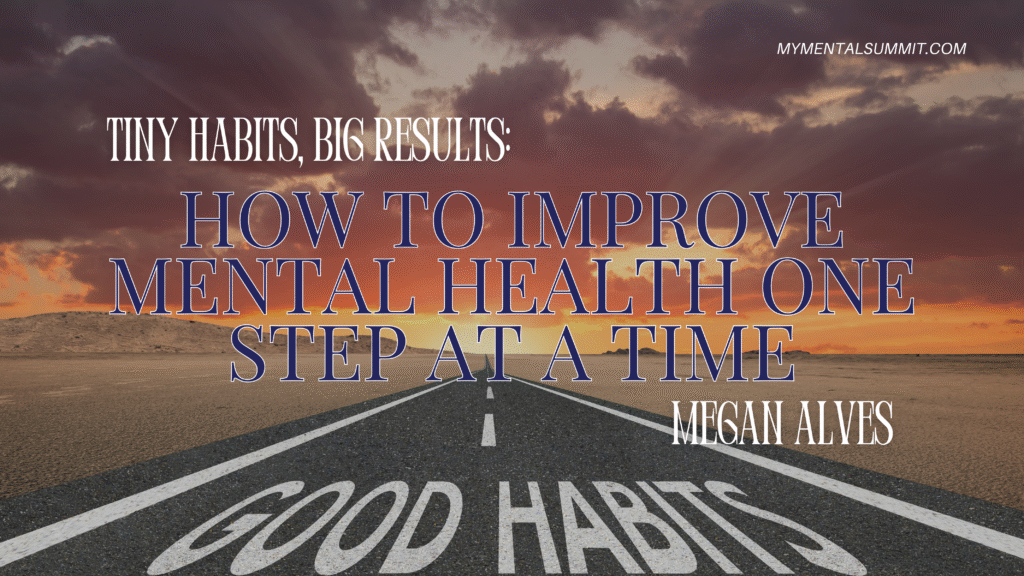
Our mental health often takes a back seat to life’s constant motion. Yet, we don’t need major lifestyle overhauls to feel better. Building small, consistent habits can improve mood, focus, and emotional resilience.
Here are five simple habits, backed by science:
1. Prioritize Sleep
Good sleep underpins every healthy routine. In fact, proper rest helps regulate mood, improve memory, and reduce stress. Experts say building new habits can falter when sleep is lacking (Verywell Mind.) Start with bedtime routines: dim lights, screen time cut-off, and consistent wake-up times to support mental clarity and habit formation.
2. Move Regularly—Even a Little
You don’t need to run a marathon. A 10-minute walk or brief “exercise snacks” (like a few stretches or push-ups) can reduce anxiety and improve mood—sometimes more than full rest . Experts explain that even short bursts of movement regulate stress hormones, boost serotonin, and improve emotional well-being.
3. Practice Micro-Joys and Gratitude
Even brief joyful moments—like noticing a sunset or saying “thank you” to someone—can lift emotional wellbeing. A UCSF study found that just five to ten minutes of daily gratitude or joy practices significantly improved happiness and stress levels, especially among people facing challenges.
4. Nourish Body and Brain with Simple Foods
You don’t need a fancy diet—just aim for nutrient-rich, whole foods. Fruits, vegetables, and fish improve mood and cognitive function by supporting serotonin levels (American Psychiatric Association.) These are achievable habits that can enhance focus and reduce emotional fatigue over time.
5. Tune into Mind and Mood with Mini Breaks
Mindfulness practices—like deep breathing, short breaks, or brief nature walks—can reset your brain when life feels overwhelming. These tiny habits build mental resilience, improve focus, and ease anxious thoughts (nhs.uk) (Tom’s Guide.)
Why Small Habits Work
Research shows that simple, repeated behaviors are more sustainable than intense goals. For instance, habit formation can vary widely, and occasional skips don’t derail progress. Small habits reduce decision fatigue, making good choices easier. Over time, these routines strengthen your emotional foundation and well-being.
Start Small. Build Slowly.
A habit doesn’t need to be perfect. Choose one area—sleep, movement, joy, nutrition, or mindfulness—and add a tiny daily version. Track progress for a week. Notice how your mind responds. Then, add another small habit when you’re ready.
Supporting mental health doesn’t require grand gestures. Small, consistent habits add up—even a few minutes a day can lead to bigger emotional change.
Want more support building gentle, sustainable routines? Explore Mental Summit at mymentalsummit.com, where you’ll find science-backed habit tools, emotional regulation strategies, and a mindful community designed to help you thrive. Let’s build from the inside out.
